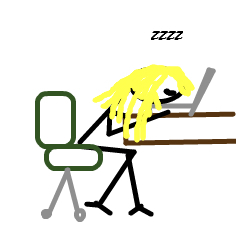Jade Varden's Blog, page 28
August 13, 2014
Writing 101: Readers Are Your Friends
If you read Charles Dickens or Jane Austen, the words are pretty flowery and formal, and I think that's confusing to writers who live in the now. Because you have to remember one important thing when you're writing: readers are your friends.

Did We Just Become Best Friends?
Books are not the place for you to be formal. You can do that on Twitter, if you want. I've long believed that we could use a bit more formality on social media, but books are intimate. You're putting your soul on the page, and somewhere out there some individual is reading those pages that represent your tears and sweat and missed sleep. So I don't want to see formality in your books. That's where you want to be casual, and treat the reader like they're actually your close friend...because now, they are.
Taking a casual tone in your books is often much more effective than all the flowery, formal language in the world. When you're reading the classics, it's important to remember that they sound very fancy now, but back then this is the way people actually talked. So when you're narrating your books, write them the way that you would speak them. While you're writing, imagining that you're telling the story to your closest friend. Write the book as if you're addressing them. Write it in your own voice and in your own tone, and you'll find that you're doing some of your best possible writing.
Readers are your friends. Write your books with that in mind, and they'll start to feel that friendship while they're reading your work. It's much easier to lose oneself in a casual piece of writing, a piece of writing that feels friendly, than it is to get lost in something formal and cold. So be friendly, and your readers will be more apt to treat your books like their friends.

Did We Just Become Best Friends?
Books are not the place for you to be formal. You can do that on Twitter, if you want. I've long believed that we could use a bit more formality on social media, but books are intimate. You're putting your soul on the page, and somewhere out there some individual is reading those pages that represent your tears and sweat and missed sleep. So I don't want to see formality in your books. That's where you want to be casual, and treat the reader like they're actually your close friend...because now, they are.
Taking a casual tone in your books is often much more effective than all the flowery, formal language in the world. When you're reading the classics, it's important to remember that they sound very fancy now, but back then this is the way people actually talked. So when you're narrating your books, write them the way that you would speak them. While you're writing, imagining that you're telling the story to your closest friend. Write the book as if you're addressing them. Write it in your own voice and in your own tone, and you'll find that you're doing some of your best possible writing.
Readers are your friends. Write your books with that in mind, and they'll start to feel that friendship while they're reading your work. It's much easier to lose oneself in a casual piece of writing, a piece of writing that feels friendly, than it is to get lost in something formal and cold. So be friendly, and your readers will be more apt to treat your books like their friends.
Published on August 13, 2014 05:30
August 12, 2014
Writing 101: Overworked
This is a post where I'm going to tell you about what I'm doing, and then caution you to do the exact opposite of what I'm doing. Seriously, do not be like me. I'm overworked. A lot of indies are.
So, this is a post where I'm going to tell you how to fix it...and probably never follow the advice.

Midnight Oil
When you're an indie author, you're basically signing up to perform two full-time jobs at once. There's the full-time job you've probably already got, unless you're independently wealthy or otherwise live outside the mundane daily world of commerce. Then, there's your new job as an indie author.
Between the research and the writing and editing and picking a cover and making a trailer and browsing forums and tweeting and all the other stuff you have to do to be good at being an indie author, it gets exhausting. It gets to the point where you're overworked. And that gets to be bad for you...pretty quickly.
Writing Books and Other Disasters
If things start to get busy at your other job and you're still committed to your job as an indie author, you're going to end up losing time somewhere else. Usually, social activities are the first thing to suffer. You'll start cutting out personal activities next. If you spend every Sunday afternoon watching a movie, you'll stop doing that once you start to be overworked. You'll start squeezing more working hours into your day, until you're not doing as much socializing or relaxing or exercising or anything.
Weekends will disappear next. You'll use your Saturdays and Sundays to catch up on work, or possibly get ahead. And when all your free time is going to work and you're tired of working all the time, maybe you'll start getting less sleep. So now you're not socializing. You're not relaxing. You're not exercising as much. You're not spending as much time taking care of yourself. And you're not sleeping enough, either.
You'll stop writing well. This is inevitable. Your mind can't work properly when you're overworked. You can't focus as well, and if you're feeling crunched for time then you can't give yourself enough time and space to be creative. You're responsible and you're determined, and you may still be writing. Pay attention: you'll stop writing well. When your brain is tired and your body is exhausted and you're not giving yourself enough time to breathe, then of course you can't write up to your full potential.
Don't let yourself be overworked all the time. You've got to take some time, sometime, for yourself. Otherwise you won't write at your best, and all that extra work won't be doing you any good at all.
So, this is a post where I'm going to tell you how to fix it...and probably never follow the advice.

Midnight Oil
When you're an indie author, you're basically signing up to perform two full-time jobs at once. There's the full-time job you've probably already got, unless you're independently wealthy or otherwise live outside the mundane daily world of commerce. Then, there's your new job as an indie author.
Between the research and the writing and editing and picking a cover and making a trailer and browsing forums and tweeting and all the other stuff you have to do to be good at being an indie author, it gets exhausting. It gets to the point where you're overworked. And that gets to be bad for you...pretty quickly.
Writing Books and Other Disasters
If things start to get busy at your other job and you're still committed to your job as an indie author, you're going to end up losing time somewhere else. Usually, social activities are the first thing to suffer. You'll start cutting out personal activities next. If you spend every Sunday afternoon watching a movie, you'll stop doing that once you start to be overworked. You'll start squeezing more working hours into your day, until you're not doing as much socializing or relaxing or exercising or anything.
Weekends will disappear next. You'll use your Saturdays and Sundays to catch up on work, or possibly get ahead. And when all your free time is going to work and you're tired of working all the time, maybe you'll start getting less sleep. So now you're not socializing. You're not relaxing. You're not exercising as much. You're not spending as much time taking care of yourself. And you're not sleeping enough, either.
You'll stop writing well. This is inevitable. Your mind can't work properly when you're overworked. You can't focus as well, and if you're feeling crunched for time then you can't give yourself enough time and space to be creative. You're responsible and you're determined, and you may still be writing. Pay attention: you'll stop writing well. When your brain is tired and your body is exhausted and you're not giving yourself enough time to breathe, then of course you can't write up to your full potential.
Don't let yourself be overworked all the time. You've got to take some time, sometime, for yourself. Otherwise you won't write at your best, and all that extra work won't be doing you any good at all.
Published on August 12, 2014 05:30
August 11, 2014
Guest Post: Writing Inspiration
Today, Jade's blog is pleased to welcome author U.L. Harper!
To this day I get asked about my inspiration. Where do I get my ideas from? I think I’m inspired by what everybody is inspired by.
 Being Inspired
Being Inspired
For the longest time I thought I was inspired by Kurt Vonnegut. Damned proud of it too. Cat’s Cradle is a classic in my book, and Slaughterhouse Five opened my eyes to the world, even if I never read the first four (just kidding). It impressed me and still does.
After reading Chuck Palahniuk’s Fight Club, I was sure that it was the prototype for every first-person present-tense novel. Violent, honest, sardonic, moving, and funny with a twist, not to mention short and at a third grade level. I figured I was influenced by Chuck, and proud of it.
And then there was Clive Barker and his Weaveworld, Imajica, Great and Secret Show novels. Works to live by. I’m not even going to bring up Hellraiser because that’s opening a box I don’t have time to explore right now. When I was reading him, I figured Barker was an influence too. His language, his special kind of action violence… Yep. Clive was my guy, and proud of it.
They were just a few of my influences, until I started actually writing novels.
Once I started writing, I didn’t see Kurt Vonnegut’s wit or timing or poignant yet lighthearted storylines coming out of me. I had none of Barker’s eloquence, and I had no idea how to present a horror or fantasy idea. Not at all, well, until recently.
This is what I found: I’m influenced by the people around me. I’m influenced by the life surrounding me. I liked Fight Club for its coverage of social issues for young men. A book for dudes my age at the time. I was twenty something when it came out. Don’t do the math. I’m not afraid to say I’m twenty-one again in December. It’s the same reason I loved Cat’s Cradle so much, as well as Slaughterhouse Five. They weren’t influencing me; they were what I needed at the time. Yes, a map. A guide, but my writing has almost nothing related. They’re part of me but not necessarily as a writer.
Let me put it a different way. It’s imperative for everyone out there to know that ideas aren’t made in a vacuum. Authors don’t sit in a room writing down ideas not knowing where these ideas come from. The ideas, the inspiration is close to us. Or, at least they’re close to me. I’ll just speak for myself, I guess.
Here’s an example of a story idea. Took my whole life to come up with:
When I was a kid, in return for a house, my parents took on the responsibility of taking care of my great grandmother who had Alzheimer’s. The experience rocked me. I couldn’t for the life of me understand why she was urinating in the closet and flinging it out into the kitchen. It felt odd to have her eating dinner after we ate. I just couldn’t quite handle the idea, but it stuck with me. My mom later told me that my great grandmother believed she was a young child in Kansas and that she basically had no idea who we were.
Now hold that idea. Jump forward about eighteen years when I get a phone call right before work telling me that my grandfather had died. You know, in my first novel, I mixed my grandfather, in his post-stroke wheelchair and pot belly with my Alzheimer stricken grandmother and there you had my influence for my main character in The Flesh Statue. Not the protagonist, for those keeping track, but the main character.
Years later, having the environment on my mind a little bit I came up with another bright idea.
For my novels In Blackness and its sequel In Blackness: The Reinvention of Man, for influence, I found myself looking out at the world and asking the question that everyone asks at some point: Why are we not food? I’m going to tell you right now that that’s how horror novels start. No vampires, no werewolves, no demons, but still, why are we not food? Then I found the answer.
The point is, the world around me has always been a huge influence. Why do people react to certain things? What’s the history on why they reacted to it? What’s their background? The authors I love so much? Well, I still dig them, and they have a place, but that place is for entertainment value. What gets me going is the same thing that gets people up for work every morning. I get my ideas from the same place kids do when they say uncontrollable wacky things. I’m inspired by the same thing that inspires probably every artist.
I’m inspired by the world around me. Yes, the whole thing.
Keep reading for an excerpt of In Blackness: The Reinvention of Man by U. L. Harper

Lenny sipped from a cup of coffee at his booth. The Best Little Road House, a diner in Salem, Oregon, was warm, dry and safe. Most of the tables were filled, with only a few waitresses helping serve everyone.
All these people eating and ordering food as if nothing was wrong. Like The Visit never happened. He couldn’t begin to forget, couldn’t shake the moment when dozens of people were beheaded and skinned right in front of him. Sometimes when he closed his eyes he’d helplessly replay the event in his head.
Because of the experience during the invasion four weeks ago, Lenny had been fueled by fear. The aliens that slaughtered so many had subsequently given him the mission of bringing people who had been given implants like him back to San Pedro.
His stomach muscles tightened. This happened for one specific reason—his implant affected him physically when another person with one was near. The other person didn’t necessarily know they had an implant. It took him his entire life to find out that he had one. He had followed the signal into the diner. Hopefully whomever he followed, they would become obvious.
At the beginning of his journey he wondered how long his trip to find subjects for the aliens would be. How far would he have to go? Realistically, his small amount of money would dictate the length of his travels. All of his savings from his pizza delivery job was spent on meals, motel rooms and gasoline.
A girl about eighteen, his age, exited the restroom. She had on hiking boots and an oversized backpack. Her partial dreadlocks fell over her shoulders. Heading his direction down the aisle, she stopped next to him and made eye contact before taking a seat at the booth next to his. Leaning forward, she wriggled her arms out of the backpack straps. The look she gave him made him self-conscious. Did he look as dirty as he felt? He didn’t normally grow a lot of facial hair but when he did let it grow, like he did now, it grew in patches of peach fuzz.
“Are you okay?” he said to her.
She showed him a weak smile. “Just need to sit. Looking for a ride.” “To San Pedro?”
Her eyes lit up. “That’s a hell of a guess. How would you guess something like that?”
She was definitely the one. “Crazy you come sit right next to me. Go figure.”
“Yeah, go do that. You’re heading to San Pedro too?”
“About to split town.”
“Then I’m Celeste. I can get a lift, yeah? I travel light.”
“You just have that?” He nodded to her backpack.
She picked up the bag with one hand and then let it drop. "Jesus, a ride would be nice. Where are you from?"
“Washington, actually.”
“Where in Washington? I’m from there.” The pitch of her voice became high when she mentioned Washington. Her bad grooming led him to believe she had been traveling for a while.
Celeste moved across the aisle to his booth, leaving her backpack in the aisle. “You seem all right."
"I pass the murderer test?"
"I mean you seem all right." She leaned forward and whispered, “I haven’t eaten all day. Can I drink some of your water?”
“Have at it.”
She drank down half the glass. “So what part of Washington are you from?”
“Lowery, originally. Small little place, right…”
“I know Lowery. My dad was born there.”
“Lowery doesn’t have a hospital,” he said. “Nobody’s actually born there.”
“Delivered in the kitchen, I shit you not.” Although she seemed embarrassed by the fact, she chuckled.
“Well damn. I was there up until I was nine or something. Maybe ten.”
She finished off his glass of water. “I need to get there.”
“Need to? To San Pedro?”
“I guess need is a bit heavy but, yeah, whatever. I need to.”
“Did you hear what happened there during the invasion? You wouldn’t want to go there if you knew about it.”
“It didn’t only happen in San Pedro. Plenty of people suffered.”
“Did you lose anybody?” he said.
“Everybody.”
“A lot of people lost everybody.”
“I’m one of them,” she said. “You lose everybody too or is this your idea of small talk?”
“I’m just saying why San Pedro? I didn’t mean to be insensitive. Still, San Pedro?” She didn’t know she was going there to have a meet and greet with the aliens and probably be killed. He’d help her get there, nonetheless. It didn’t feel right but he had to do it.
“Why are you going?” she said.
“Family.”
She gazed at the ceiling and then looked around, avoiding eye contact. “Just a feeling I have. I can picture myself there. You know?”
He leaned back in his seat. If she knew him better she’d know that guilt had taken him by surprise.
“Let’s get you something to eat,” he said. “A sandwich?”
“You’re offering?”
“Only this time.”
“Ham and turkey. I’m vegetarian but fuck that I’m hungry.”
“I’m Lenny. Good to meet you, Celeste.”
“Thank God I met you, Lenny. Thank goodness for rides. Lucky.”
“I wouldn’t use that word luck too loosely.”
She unzipped the big pocket on her backpack, looked inside it and then zipped it back. Then she unzipped a smaller pocket, looked inside and closed it, too.
He knocked twice on the wood table. “You have gas money?”
“I thought you were already going there.”
“It’s still gas, right?”
A waitress stopped at their table and asked to take their order.
Moments later a turkey and ham sandwich with mustard and mayonnaise oozing from the sides of it was set on the table.
With her mouth full of sandwich, Celeste looked like a rodent storing nuts in her cheeks.
She spoke a garbled, “Thank you. Starving.”
This might have been what it was like feeding the homeless on skid row.
Once she finished her sandwich they prepared to leave.
Outside, his four-door hatchback waited for them in the wet parking lot.
Celeste tossed her backpack in the back seat as he started the engine.
“Here we go,” he said.
***
He hid his dread of being inside the motel room from Celeste. For the time being, he had a hard time in the dark, in enclosed places. He couldn’t keep his hands from shaking, thinking of his experience during The Visit. If he could make it all the way back to San Pedro without sleeping he would. Since that wasn’t the case they had stopped for rest. No way would he let her drive his car. She seemed cool but why trust her?
She drifted to sleep, leaving him alone on the end of the bed to stare at silent news clips on television. One of the clips enticed him to turn up the volume. In the clip, the alien ship slowly fell through high puffy clouds and blocked out the sun. Daunting in scope, the ship had spanned from San Pedro to Washington. The sight of it would be talked about for generations and then some. His biggest fear was right there on the screen.
“Have you seen that before?”
He hadn’t realized she was awake. “Oh, no. Never seen that. Don’t know why. I guess in the few weeks since it happened I haven’t stopped to really… Wow.” The television showed another visual similar to the one he had looked at seconds ago. This time the amateur video caught news helicopters flying far underneath the ship, really nowhere close to it. During the time the footage was taken, he and Saline were in Lowery, Washington, being captured and shipped to San Pedro. On the news is what the general public had seen. What the living public didn’t see were the aliens. Basically everyone who had seen them had been murdered in the slaughters.
Looking at the screen she said, “Does this feel like the end of the world to you?”
“I think it’s the start of something.”
“So it’s the beginning, not the end?”
“My thought is that nothing can go back to how it was. Not completely. I don’t think so.” Then he lied down, accepting the consequences of closing his eyes.
"You don’t think the worst happened?”
“I saw people getting their heads chopped off. We were in a room with people getting skinned. Just… Crazy like you don’t want to know or see.” He shook his head. “I don’t want to picture it.”
“I’ve never heard… How’d you get out? You escaped?”
“Just thinking about it screws me up.” He held his right hand out for her to observe its shaking.
“I’m sorry.”
It was nice showing someone how much of a basket case he had become. It felt like confession. All this despite the fact that she’d be dead soon.
Someone knocked on the door.
He dragged his feet over to it and stuck his eye to the peephole. A woman in her early to mid-forties was smiling at him. She waved, and then knocked again, in her jeans and black hooded sweater.
He unlatched the lock and cracked the door open.
The woman kicked the door into him, smashing him in the forehead so hard that he saw stars. He fell to the floor grabbing his face with both hands. The intruder slipped past him.
With his face to the dusty carpet he heard two gunshots and then the thud of what he thought was Celeste hitting the floor. He looked up at a handgun aimed at his skull. With the gun at his head, cowardice took over. “They made me do it.”
“Wha...” The woman gazed at him in disgust and slightly confused.
She still had the gun pointed at his head but he figured second thoughts about harming him had entered her mind.
He turned his head and got a glimpse of Celeste’s motionless ankles and legs. Breathing heavy, he turned his attention back to the gun aimed at him.
“Who made you do what?”
“The aliens. They made me get her.” He hoped on everything he loved that she respected the notion.
After some consideration the woman lifted her weapon and smacked him over the head with it. She hit him again with a fist to the cranium, and then kicked him in the stomach. Still catching his breath, he coughed as she ran out the door.
Curled in a ball and in tears he let the initial pain run its course. Attempting to push himself to his feet, he placed both hands on the floor, groaning.
The woman rushed back into the room. “We’re pulling that implant out of you.”
“Wait! Wait!”
She shut the door behind her. “Yell again and I kill you.”
About the Author
 U.L. Harper is an author from Long Beach, California. A former newspaper writer and poet, he published his first novel, The Flesh Statue in 2005. His hobbies include, skateboarding, basketball and the occasional glass of bourbon. Yes, bourbon as a hobby. You can reach him at ulharper1@gmail.com. His latest novels are In Blackness and its sequel In Blackness: The Reinvention of Man. You can reach him on twitter @ulharper
U.L. Harper is an author from Long Beach, California. A former newspaper writer and poet, he published his first novel, The Flesh Statue in 2005. His hobbies include, skateboarding, basketball and the occasional glass of bourbon. Yes, bourbon as a hobby. You can reach him at ulharper1@gmail.com. His latest novels are In Blackness and its sequel In Blackness: The Reinvention of Man. You can reach him on twitter @ulharper
To this day I get asked about my inspiration. Where do I get my ideas from? I think I’m inspired by what everybody is inspired by.
 Being Inspired
Being Inspired For the longest time I thought I was inspired by Kurt Vonnegut. Damned proud of it too. Cat’s Cradle is a classic in my book, and Slaughterhouse Five opened my eyes to the world, even if I never read the first four (just kidding). It impressed me and still does.
After reading Chuck Palahniuk’s Fight Club, I was sure that it was the prototype for every first-person present-tense novel. Violent, honest, sardonic, moving, and funny with a twist, not to mention short and at a third grade level. I figured I was influenced by Chuck, and proud of it.
And then there was Clive Barker and his Weaveworld, Imajica, Great and Secret Show novels. Works to live by. I’m not even going to bring up Hellraiser because that’s opening a box I don’t have time to explore right now. When I was reading him, I figured Barker was an influence too. His language, his special kind of action violence… Yep. Clive was my guy, and proud of it.
They were just a few of my influences, until I started actually writing novels.
Once I started writing, I didn’t see Kurt Vonnegut’s wit or timing or poignant yet lighthearted storylines coming out of me. I had none of Barker’s eloquence, and I had no idea how to present a horror or fantasy idea. Not at all, well, until recently.
This is what I found: I’m influenced by the people around me. I’m influenced by the life surrounding me. I liked Fight Club for its coverage of social issues for young men. A book for dudes my age at the time. I was twenty something when it came out. Don’t do the math. I’m not afraid to say I’m twenty-one again in December. It’s the same reason I loved Cat’s Cradle so much, as well as Slaughterhouse Five. They weren’t influencing me; they were what I needed at the time. Yes, a map. A guide, but my writing has almost nothing related. They’re part of me but not necessarily as a writer.
Let me put it a different way. It’s imperative for everyone out there to know that ideas aren’t made in a vacuum. Authors don’t sit in a room writing down ideas not knowing where these ideas come from. The ideas, the inspiration is close to us. Or, at least they’re close to me. I’ll just speak for myself, I guess.
Here’s an example of a story idea. Took my whole life to come up with:
When I was a kid, in return for a house, my parents took on the responsibility of taking care of my great grandmother who had Alzheimer’s. The experience rocked me. I couldn’t for the life of me understand why she was urinating in the closet and flinging it out into the kitchen. It felt odd to have her eating dinner after we ate. I just couldn’t quite handle the idea, but it stuck with me. My mom later told me that my great grandmother believed she was a young child in Kansas and that she basically had no idea who we were.
Now hold that idea. Jump forward about eighteen years when I get a phone call right before work telling me that my grandfather had died. You know, in my first novel, I mixed my grandfather, in his post-stroke wheelchair and pot belly with my Alzheimer stricken grandmother and there you had my influence for my main character in The Flesh Statue. Not the protagonist, for those keeping track, but the main character.
Years later, having the environment on my mind a little bit I came up with another bright idea.
For my novels In Blackness and its sequel In Blackness: The Reinvention of Man, for influence, I found myself looking out at the world and asking the question that everyone asks at some point: Why are we not food? I’m going to tell you right now that that’s how horror novels start. No vampires, no werewolves, no demons, but still, why are we not food? Then I found the answer.
The point is, the world around me has always been a huge influence. Why do people react to certain things? What’s the history on why they reacted to it? What’s their background? The authors I love so much? Well, I still dig them, and they have a place, but that place is for entertainment value. What gets me going is the same thing that gets people up for work every morning. I get my ideas from the same place kids do when they say uncontrollable wacky things. I’m inspired by the same thing that inspires probably every artist.
I’m inspired by the world around me. Yes, the whole thing.
Keep reading for an excerpt of In Blackness: The Reinvention of Man by U. L. Harper

Lenny sipped from a cup of coffee at his booth. The Best Little Road House, a diner in Salem, Oregon, was warm, dry and safe. Most of the tables were filled, with only a few waitresses helping serve everyone.
All these people eating and ordering food as if nothing was wrong. Like The Visit never happened. He couldn’t begin to forget, couldn’t shake the moment when dozens of people were beheaded and skinned right in front of him. Sometimes when he closed his eyes he’d helplessly replay the event in his head.
Because of the experience during the invasion four weeks ago, Lenny had been fueled by fear. The aliens that slaughtered so many had subsequently given him the mission of bringing people who had been given implants like him back to San Pedro.
His stomach muscles tightened. This happened for one specific reason—his implant affected him physically when another person with one was near. The other person didn’t necessarily know they had an implant. It took him his entire life to find out that he had one. He had followed the signal into the diner. Hopefully whomever he followed, they would become obvious.
At the beginning of his journey he wondered how long his trip to find subjects for the aliens would be. How far would he have to go? Realistically, his small amount of money would dictate the length of his travels. All of his savings from his pizza delivery job was spent on meals, motel rooms and gasoline.
A girl about eighteen, his age, exited the restroom. She had on hiking boots and an oversized backpack. Her partial dreadlocks fell over her shoulders. Heading his direction down the aisle, she stopped next to him and made eye contact before taking a seat at the booth next to his. Leaning forward, she wriggled her arms out of the backpack straps. The look she gave him made him self-conscious. Did he look as dirty as he felt? He didn’t normally grow a lot of facial hair but when he did let it grow, like he did now, it grew in patches of peach fuzz.
“Are you okay?” he said to her.
She showed him a weak smile. “Just need to sit. Looking for a ride.” “To San Pedro?”
Her eyes lit up. “That’s a hell of a guess. How would you guess something like that?”
She was definitely the one. “Crazy you come sit right next to me. Go figure.”
“Yeah, go do that. You’re heading to San Pedro too?”
“About to split town.”
“Then I’m Celeste. I can get a lift, yeah? I travel light.”
“You just have that?” He nodded to her backpack.
She picked up the bag with one hand and then let it drop. "Jesus, a ride would be nice. Where are you from?"
“Washington, actually.”
“Where in Washington? I’m from there.” The pitch of her voice became high when she mentioned Washington. Her bad grooming led him to believe she had been traveling for a while.
Celeste moved across the aisle to his booth, leaving her backpack in the aisle. “You seem all right."
"I pass the murderer test?"
"I mean you seem all right." She leaned forward and whispered, “I haven’t eaten all day. Can I drink some of your water?”
“Have at it.”
She drank down half the glass. “So what part of Washington are you from?”
“Lowery, originally. Small little place, right…”
“I know Lowery. My dad was born there.”
“Lowery doesn’t have a hospital,” he said. “Nobody’s actually born there.”
“Delivered in the kitchen, I shit you not.” Although she seemed embarrassed by the fact, she chuckled.
“Well damn. I was there up until I was nine or something. Maybe ten.”
She finished off his glass of water. “I need to get there.”
“Need to? To San Pedro?”
“I guess need is a bit heavy but, yeah, whatever. I need to.”
“Did you hear what happened there during the invasion? You wouldn’t want to go there if you knew about it.”
“It didn’t only happen in San Pedro. Plenty of people suffered.”
“Did you lose anybody?” he said.
“Everybody.”
“A lot of people lost everybody.”
“I’m one of them,” she said. “You lose everybody too or is this your idea of small talk?”
“I’m just saying why San Pedro? I didn’t mean to be insensitive. Still, San Pedro?” She didn’t know she was going there to have a meet and greet with the aliens and probably be killed. He’d help her get there, nonetheless. It didn’t feel right but he had to do it.
“Why are you going?” she said.
“Family.”
She gazed at the ceiling and then looked around, avoiding eye contact. “Just a feeling I have. I can picture myself there. You know?”
He leaned back in his seat. If she knew him better she’d know that guilt had taken him by surprise.
“Let’s get you something to eat,” he said. “A sandwich?”
“You’re offering?”
“Only this time.”
“Ham and turkey. I’m vegetarian but fuck that I’m hungry.”
“I’m Lenny. Good to meet you, Celeste.”
“Thank God I met you, Lenny. Thank goodness for rides. Lucky.”
“I wouldn’t use that word luck too loosely.”
She unzipped the big pocket on her backpack, looked inside it and then zipped it back. Then she unzipped a smaller pocket, looked inside and closed it, too.
He knocked twice on the wood table. “You have gas money?”
“I thought you were already going there.”
“It’s still gas, right?”
A waitress stopped at their table and asked to take their order.
Moments later a turkey and ham sandwich with mustard and mayonnaise oozing from the sides of it was set on the table.
With her mouth full of sandwich, Celeste looked like a rodent storing nuts in her cheeks.
She spoke a garbled, “Thank you. Starving.”
This might have been what it was like feeding the homeless on skid row.
Once she finished her sandwich they prepared to leave.
Outside, his four-door hatchback waited for them in the wet parking lot.
Celeste tossed her backpack in the back seat as he started the engine.
“Here we go,” he said.
***
He hid his dread of being inside the motel room from Celeste. For the time being, he had a hard time in the dark, in enclosed places. He couldn’t keep his hands from shaking, thinking of his experience during The Visit. If he could make it all the way back to San Pedro without sleeping he would. Since that wasn’t the case they had stopped for rest. No way would he let her drive his car. She seemed cool but why trust her?
She drifted to sleep, leaving him alone on the end of the bed to stare at silent news clips on television. One of the clips enticed him to turn up the volume. In the clip, the alien ship slowly fell through high puffy clouds and blocked out the sun. Daunting in scope, the ship had spanned from San Pedro to Washington. The sight of it would be talked about for generations and then some. His biggest fear was right there on the screen.
“Have you seen that before?”
He hadn’t realized she was awake. “Oh, no. Never seen that. Don’t know why. I guess in the few weeks since it happened I haven’t stopped to really… Wow.” The television showed another visual similar to the one he had looked at seconds ago. This time the amateur video caught news helicopters flying far underneath the ship, really nowhere close to it. During the time the footage was taken, he and Saline were in Lowery, Washington, being captured and shipped to San Pedro. On the news is what the general public had seen. What the living public didn’t see were the aliens. Basically everyone who had seen them had been murdered in the slaughters.
Looking at the screen she said, “Does this feel like the end of the world to you?”
“I think it’s the start of something.”
“So it’s the beginning, not the end?”
“My thought is that nothing can go back to how it was. Not completely. I don’t think so.” Then he lied down, accepting the consequences of closing his eyes.
"You don’t think the worst happened?”
“I saw people getting their heads chopped off. We were in a room with people getting skinned. Just… Crazy like you don’t want to know or see.” He shook his head. “I don’t want to picture it.”
“I’ve never heard… How’d you get out? You escaped?”
“Just thinking about it screws me up.” He held his right hand out for her to observe its shaking.
“I’m sorry.”
It was nice showing someone how much of a basket case he had become. It felt like confession. All this despite the fact that she’d be dead soon.
Someone knocked on the door.
He dragged his feet over to it and stuck his eye to the peephole. A woman in her early to mid-forties was smiling at him. She waved, and then knocked again, in her jeans and black hooded sweater.
He unlatched the lock and cracked the door open.
The woman kicked the door into him, smashing him in the forehead so hard that he saw stars. He fell to the floor grabbing his face with both hands. The intruder slipped past him.
With his face to the dusty carpet he heard two gunshots and then the thud of what he thought was Celeste hitting the floor. He looked up at a handgun aimed at his skull. With the gun at his head, cowardice took over. “They made me do it.”
“Wha...” The woman gazed at him in disgust and slightly confused.
She still had the gun pointed at his head but he figured second thoughts about harming him had entered her mind.
He turned his head and got a glimpse of Celeste’s motionless ankles and legs. Breathing heavy, he turned his attention back to the gun aimed at him.
“Who made you do what?”
“The aliens. They made me get her.” He hoped on everything he loved that she respected the notion.
After some consideration the woman lifted her weapon and smacked him over the head with it. She hit him again with a fist to the cranium, and then kicked him in the stomach. Still catching his breath, he coughed as she ran out the door.
Curled in a ball and in tears he let the initial pain run its course. Attempting to push himself to his feet, he placed both hands on the floor, groaning.
The woman rushed back into the room. “We’re pulling that implant out of you.”
“Wait! Wait!”
She shut the door behind her. “Yell again and I kill you.”
About the Author
 U.L. Harper is an author from Long Beach, California. A former newspaper writer and poet, he published his first novel, The Flesh Statue in 2005. His hobbies include, skateboarding, basketball and the occasional glass of bourbon. Yes, bourbon as a hobby. You can reach him at ulharper1@gmail.com. His latest novels are In Blackness and its sequel In Blackness: The Reinvention of Man. You can reach him on twitter @ulharper
U.L. Harper is an author from Long Beach, California. A former newspaper writer and poet, he published his first novel, The Flesh Statue in 2005. His hobbies include, skateboarding, basketball and the occasional glass of bourbon. Yes, bourbon as a hobby. You can reach him at ulharper1@gmail.com. His latest novels are In Blackness and its sequel In Blackness: The Reinvention of Man. You can reach him on twitter @ulharper
Published on August 11, 2014 05:30
August 7, 2014
Writing 101: What Makes Classic Books So Good
You'll notice that there's no question mark at the end of the post's title. It's because I already know why the classics are classics. And unless you know it, too, your book may not be regarded as a classic 50 years from now.

Why I Don't Like 'Wuthering Heights'
Look, I've got nothing against any of the Bronte sisters. I, too, am touched by their tragic story. But I've made it very clear -- sometimes through my characters -- that I don't particularly care for "Wuthering Heights" as a story. I find it impossible to believe and the plot drags along. The point is, this book is a classic. And like many other classics, it has a few key elements in place that have made it so popular. Even though I didn't like it, many people do. So what elements make it so great?
Mechanics: By and large, all your classic literature is written with proper writing mechanics. That means grammar and punctuation. The except to this is dialogue, but we'll get to that later. Classic literature is often classic because it gives us a look at how language has changed. Books that are going to serve as the example have to be, at the very least, well-written. Slice of Life: Some of the best and most enduring classic literature is written in the present day. Jane Austen, for example, is considered great because her material was so relevant to her own lifetime. Period pieces definitely have their place, and I love a charade, but a shocking number of so-called classics were written in the author's present day. Dialogue: When it comes to writing a book, dialogue is the exception to every rule. This is where you're allowed to make your grammar mistakes and put your ability to spell accents to good use. The best-loved classic novels almost always have memorable, true-to-life dialogue. I've used this piece of advice a lot, and I'll never stop: write the way people talk. Read your dialogue out loud. Make it sound the way you'd say it.
Think about the elements that make classic books so good, and try to use the same elements in the books you create. Who knows? Maybe a century from now, people will talk about your books on Goodreads and look for ways to emulate your style.

Why I Don't Like 'Wuthering Heights'
Look, I've got nothing against any of the Bronte sisters. I, too, am touched by their tragic story. But I've made it very clear -- sometimes through my characters -- that I don't particularly care for "Wuthering Heights" as a story. I find it impossible to believe and the plot drags along. The point is, this book is a classic. And like many other classics, it has a few key elements in place that have made it so popular. Even though I didn't like it, many people do. So what elements make it so great?
Mechanics: By and large, all your classic literature is written with proper writing mechanics. That means grammar and punctuation. The except to this is dialogue, but we'll get to that later. Classic literature is often classic because it gives us a look at how language has changed. Books that are going to serve as the example have to be, at the very least, well-written. Slice of Life: Some of the best and most enduring classic literature is written in the present day. Jane Austen, for example, is considered great because her material was so relevant to her own lifetime. Period pieces definitely have their place, and I love a charade, but a shocking number of so-called classics were written in the author's present day. Dialogue: When it comes to writing a book, dialogue is the exception to every rule. This is where you're allowed to make your grammar mistakes and put your ability to spell accents to good use. The best-loved classic novels almost always have memorable, true-to-life dialogue. I've used this piece of advice a lot, and I'll never stop: write the way people talk. Read your dialogue out loud. Make it sound the way you'd say it.
Think about the elements that make classic books so good, and try to use the same elements in the books you create. Who knows? Maybe a century from now, people will talk about your books on Goodreads and look for ways to emulate your style.
Published on August 07, 2014 05:30
August 6, 2014
Writing 101: The Boredom Test
I've talked a lot about book length, but that's because it's such a fine science. You always want to leave your readers wanting a little bit more. They should feel just a little sad, and not at all relieved, when they get to that last page. That's why all authors have to make sure their novels can pass the boredom test. There's only way to administer the test: you have to read your own book until it almost drives you out of your mind.

Back Off, I'm Editing
Editing a book basically means reading it -- over and over and over and over again. In fact, four times isn't really enough to give your book a thorough edit. Seriously, it's not. Because even if you can somehow get rid of all your mistakes, proofread all your grammar and punctuation, check or plot holes and eliminate all the excess stuff you don't need, you still have to make sure your book can pass the boredom test.
And in order to conduct that test properly, you're going to need to read your book a good 5 times or more. Because if you can read your own book at least 5 times without stopping in the middle, hurling an ereader against the wall or falling asleep, then it has passed the boredom test. Basically it works like this: if you get bored reading your book, everyone will. Most people read their favorite books 5 times or more. If your book has any chance of ever becoming someone's favorite book, then the boredom test is necessary.
In fact, it's an integral part of editing that book. The whole point of editing is making the novel as perfect as possible, and that includes capturing and maintaining interest. So go read your book until you think your eyes are going to bleed. As long as you don't feel like sticking forks in your eyes as a result, your book is on the right track.

Back Off, I'm Editing
Editing a book basically means reading it -- over and over and over and over again. In fact, four times isn't really enough to give your book a thorough edit. Seriously, it's not. Because even if you can somehow get rid of all your mistakes, proofread all your grammar and punctuation, check or plot holes and eliminate all the excess stuff you don't need, you still have to make sure your book can pass the boredom test.
And in order to conduct that test properly, you're going to need to read your book a good 5 times or more. Because if you can read your own book at least 5 times without stopping in the middle, hurling an ereader against the wall or falling asleep, then it has passed the boredom test. Basically it works like this: if you get bored reading your book, everyone will. Most people read their favorite books 5 times or more. If your book has any chance of ever becoming someone's favorite book, then the boredom test is necessary.
In fact, it's an integral part of editing that book. The whole point of editing is making the novel as perfect as possible, and that includes capturing and maintaining interest. So go read your book until you think your eyes are going to bleed. As long as you don't feel like sticking forks in your eyes as a result, your book is on the right track.
Published on August 06, 2014 05:30
August 5, 2014
Writing 101: Disregarding History
Through a certain series of circumstances, I got into an argument about tobacco recently. I was involved in what we're going to loosely term a writing collaboration, and the point is that someone wanted to add tobacco to a scene that was taking place in the 1300s. So naturally, I had a complete fit about it. Tobacco wasn't brought to Europe until after the famed voyage of Columbus in 1492, and you don't even have to be a history buff (like me) to know that. I got (metaphorically) bloodied in the ensuing argument that erupted, and it got me to thinking about disregarding history...and when it's okay to do that, for the sake of the story.

What Does It Matter?
I'm a big fan of historical accuracy, and I've been known to go into a rant about Disney movies that will almost shatter windows (many are inaccurate). So I'm always going to be the person who says everything should be historically accurate to the tiniest details. If tobacco didn't exist, then no your character can't smoke a pipe. You wouldn't paint over the Mona Lisa to put an iPhone in her hand, right?
But rewriting history is becoming popular in fiction these days, and there are times when it can be fun to see a story where the lines of reality are a little blurred. "Inglorious Basterds" won all kinds of acclaim, and the only true thing about that movie is that Hitler did exist.
Sometimes, history may need to be disregarded or otherwise tweaked in order to tell a certain story. The entire steampunk genre, for example. But sometimes, writers are just being plain old lazy. Don't disregard history because you don't feel like fact-checking. Don't gloss over or ignore or say it's all for the sake of the story when you could just as easily use real history to lend your story weight.
When you're disregarding history, you're walking a very fine storytelling line. If you're going to cross it, make sure you've got a darn good reason for doing that. Otherwise, you may end up in a knock-down, drag-out with the likes of me.

What Does It Matter?
I'm a big fan of historical accuracy, and I've been known to go into a rant about Disney movies that will almost shatter windows (many are inaccurate). So I'm always going to be the person who says everything should be historically accurate to the tiniest details. If tobacco didn't exist, then no your character can't smoke a pipe. You wouldn't paint over the Mona Lisa to put an iPhone in her hand, right?
But rewriting history is becoming popular in fiction these days, and there are times when it can be fun to see a story where the lines of reality are a little blurred. "Inglorious Basterds" won all kinds of acclaim, and the only true thing about that movie is that Hitler did exist.
Sometimes, history may need to be disregarded or otherwise tweaked in order to tell a certain story. The entire steampunk genre, for example. But sometimes, writers are just being plain old lazy. Don't disregard history because you don't feel like fact-checking. Don't gloss over or ignore or say it's all for the sake of the story when you could just as easily use real history to lend your story weight.
When you're disregarding history, you're walking a very fine storytelling line. If you're going to cross it, make sure you've got a darn good reason for doing that. Otherwise, you may end up in a knock-down, drag-out with the likes of me.
Published on August 05, 2014 05:30
August 4, 2014
Writing 101: The Power of a Single Scene
If you can paint a strong enough picture with just one scene, and get that important point across, you can save yourself a whole lot of writing work. Harness the power of a single scene, and make it work for you.

A Quick Word
I've made no secret of the fact that I'm deep into editing mode lately, but what I haven't mentioned is that I took a break from the book. It wasn't intentional. Work piled up on me, and I've had no time for much of anything but sleeping and working. So I ended up being away from editing for about a week, and it changed everything. I learned that there's a lot of power in a single scene...and I saved myself a lot of rewriting.
It’s essential to paint a complete scene for readers, or else they can’t really get inside your world. I realized, in re-reading my newest manuscript, that one of my characters was repeating a specific behavior. The problem is, I wasn’t completing the scene. Each time, I kept skipping right over an important detail about this behavior. So I made myself a note, and the other night I was all prepared to go through the entire novel and complete each and every single scene involving this particular behavior.
Then I realized I could do it with just one scene. If I explain it well enough just once, I won’t have to repeat it several times throughout the book. That’s the power of a single scene. If you get it right, and make it resonate with the reader, you won’t have to repeat information. You can give it to the reader just once.
Don't add a bunch of repetition to your book if you can give the reader the information they need with just one strong scene. A single well-written scene will have a bigger impact on readers than finding a dozen different ways to give them the same information. So focus on making each scene strong, giving the readers what they need...and eliminating what they don't. Isn't that what editing is all about?
Published on August 04, 2014 05:30
August 3, 2014
Authors Unite Against a Common Foe: Amazon
A number of authors are coming together to create Authors United, a group who wants Amazon to ends its war with Hachette. Their demand? Amazon will continue giving them standard royalty payments for their Hachette titles, and Amazon will go back to stocking Hachette titles on their website. The requests seem reasonable...and yet this war has been going on for weeks. Where do you stand on the battle lines?

To the Mattresses
Around 1,000 authors have already signed one petition against Amazon. So far, however, attempts to get Amazon to the negotiating table have failed. The letter that Authors United sent to Amazon will be published in the New York Times in a matter of days.
Signers of the letter include Stephen King, John Grisham, James Patterson and David Baldacci. Many of these well-known authors have already donated money to the group for advertising and other purposes.
However, there are authors on the other side of the war. A petition on Change.org, essentially a letter to Hachette, has more than 7,000 author signatures on it.

To the Mattresses
Around 1,000 authors have already signed one petition against Amazon. So far, however, attempts to get Amazon to the negotiating table have failed. The letter that Authors United sent to Amazon will be published in the New York Times in a matter of days.
Signers of the letter include Stephen King, John Grisham, James Patterson and David Baldacci. Many of these well-known authors have already donated money to the group for advertising and other purposes.
However, there are authors on the other side of the war. A petition on Change.org, essentially a letter to Hachette, has more than 7,000 author signatures on it.
Published on August 03, 2014 05:30
July 31, 2014
Writing 101: The Evolution of Book Length
Are books getting shorter? More and more, I'm finding that the books on my reader are pretty quick reads. When I recently looked at 10 books from the top 15 Amazon bestsellers in fiction, half of them were less than 300 pages. The other 5 contained fewer than 500 pages. Not one that I saw was a thick, epic novel, like a Little Women or Clan of the Cave Bear. Should you be aiming to write shorter books, too?

Pages and Pages
Have you ever gotten a good look at Gone With the Wind? The printed book can practically be used as a deadly weapon -- it's that heavy. Epic-length novels are something that people once took for granted. Big, thick heavy books were very much the fashion when Jane Austen was weaving her tales. But these days, big books are becoming harder to find...not just on the bestseller lists, but all over the book market.
I could throw a lot of science at you, but suffice it to say that multiple studies indicate that indeed books are getting shorter -- and it's our fault. People move quickly these days. You surf the Internet with great speed, skip through the commercials with a flick of the wrist, watch TV on the go and drive through all the time. People flitter around on Twitter, visit all sorts of links on Facebook and do whatever they like on a whim. Our attention spans are getting shorter because we need a lot of stimuli in order to stay interested in any particular thing.
And in that mindset, it's hard to throw an epic novel into the mix. Readers can download books online and read them on the go, and there are more books available today than any day before so why would they want to spend lots of time on just one book? The answer is they don't. Books have been getting shorter for a while now, and only rarely do longer books break into the bestselling charts. Harry Potter, obviously, but how many other epic books have you read (and loved) lately?
The median length of books in 2012 was 64,000 words. That's about 240 printed pages. Book length is evolving, and short is in. Many indie authors are using the trend to their favor. They're churning out short novels quickly, keeping their readers engaged, and making a good living at it.
When the book industry evolves, indie authors evolve with it. Like all the greatest species, this is how we survive. So edit aggressively, and keep your books action-packed and to-the-point. It's a new era.

Pages and Pages
Have you ever gotten a good look at Gone With the Wind? The printed book can practically be used as a deadly weapon -- it's that heavy. Epic-length novels are something that people once took for granted. Big, thick heavy books were very much the fashion when Jane Austen was weaving her tales. But these days, big books are becoming harder to find...not just on the bestseller lists, but all over the book market.
I could throw a lot of science at you, but suffice it to say that multiple studies indicate that indeed books are getting shorter -- and it's our fault. People move quickly these days. You surf the Internet with great speed, skip through the commercials with a flick of the wrist, watch TV on the go and drive through all the time. People flitter around on Twitter, visit all sorts of links on Facebook and do whatever they like on a whim. Our attention spans are getting shorter because we need a lot of stimuli in order to stay interested in any particular thing.
And in that mindset, it's hard to throw an epic novel into the mix. Readers can download books online and read them on the go, and there are more books available today than any day before so why would they want to spend lots of time on just one book? The answer is they don't. Books have been getting shorter for a while now, and only rarely do longer books break into the bestselling charts. Harry Potter, obviously, but how many other epic books have you read (and loved) lately?
The median length of books in 2012 was 64,000 words. That's about 240 printed pages. Book length is evolving, and short is in. Many indie authors are using the trend to their favor. They're churning out short novels quickly, keeping their readers engaged, and making a good living at it.
When the book industry evolves, indie authors evolve with it. Like all the greatest species, this is how we survive. So edit aggressively, and keep your books action-packed and to-the-point. It's a new era.
Published on July 31, 2014 05:30
July 30, 2014
Do Exclusive Deals with Amazon Ultimately Hurt Indies?
Amazon recently unveiled yet another program designed for indie authors, and if you use Amazon services you've probably already been treated to the email blast. Kindle Unlimited is a book-sharing program that gives readers a database of books to read. It all sounds great...until you learn that, like Amazon's KDP program, it requires exclusivity.

Going Steady
Amazon wants you to be their steady significant other...for ever. Authors who participate in Kindle Unlimited must be members of KDP Select, Amazon's exclusive program for indie authors. The authors who use KDP Select cannot sell their books on any other website, such as Barnes & Noble and Smashwords.
One could argue that Amazon sells more ebooks than all those other websites anyway. One could also argue that Amazon has provided all the platform and marketing opportunity for self-published authors, and they clearly support indies. What about CreateSpace?
There is a good reason that Amazon sells more ebooks than anyone else: stunts like this Kindle Unlimited arrangement.
One could make all sorts of arguments in Amazon's favor, but it boils down to this: when you're trying to sell something, exclusive agreements aren't any good. The free market is meant to be open to all, and it's this very openness that provides all the opportunity for those who have products and services to offer. If you can only sell your product out of one store, this clearly limits your availability. There are already half a million books in Amazon's KDP program, half a million books I can't buy anywhere but Amazon.
Is your book one of them?

Going Steady
Amazon wants you to be their steady significant other...for ever. Authors who participate in Kindle Unlimited must be members of KDP Select, Amazon's exclusive program for indie authors. The authors who use KDP Select cannot sell their books on any other website, such as Barnes & Noble and Smashwords.
One could argue that Amazon sells more ebooks than all those other websites anyway. One could also argue that Amazon has provided all the platform and marketing opportunity for self-published authors, and they clearly support indies. What about CreateSpace?
There is a good reason that Amazon sells more ebooks than anyone else: stunts like this Kindle Unlimited arrangement.
One could make all sorts of arguments in Amazon's favor, but it boils down to this: when you're trying to sell something, exclusive agreements aren't any good. The free market is meant to be open to all, and it's this very openness that provides all the opportunity for those who have products and services to offer. If you can only sell your product out of one store, this clearly limits your availability. There are already half a million books in Amazon's KDP program, half a million books I can't buy anywhere but Amazon.
Is your book one of them?
Published on July 30, 2014 11:30



